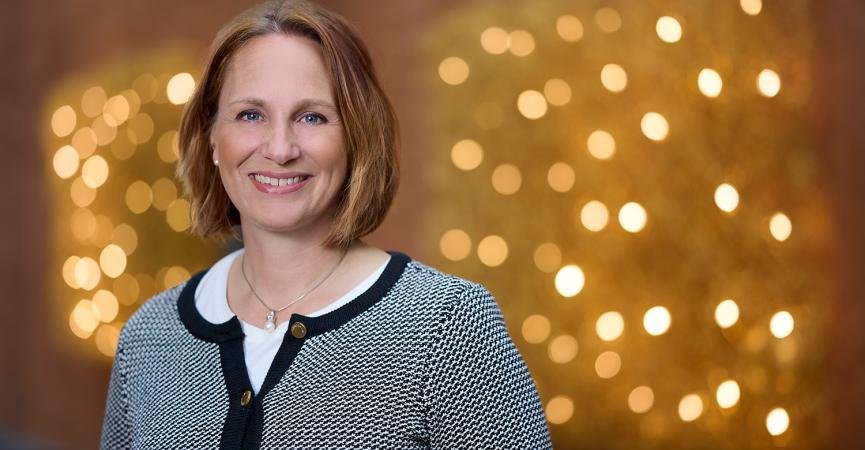Netnod Warns: Sweden’s Digital Infrastructure is Vulnerable
Karin Ahl, CEO at Netnod. Photo: Netnod.
In an era where digital infrastructure is the backbone of society, we can no longer compromise on security. At Allicon, we emphasize the importance of robust and resilient solutions to meet future challenges. We spoke with Karin Ahl, CEO of Netnod, and Patrik Fältström, internet pioneer and CSO at the same company, about the biggest threats and how we can ensure a stable digital future.
How Robust is Sweden’s Digital Infrastructure?
Karin: In my article on DN Debatt, "The Internet Must Withstand More Than Cute Cat Videos," I pointed out that we must build infrastructure capable of more than just entertainment. There is a lack of clarity in responsibility allocation, and we are often reactive instead of proactive. When a crisis hits, we are left unprepared because we have not established a sufficiently robust infrastructure in Sweden.
Patrik: A major issue is that organizations often lack insight into how digital problems affect their operations. There is a gap between risk analysis and how IT systems are managed in practice. Right now, we see double failures in these analyses.
Are We Prepared for a Major Societal Crisis, Such as a Cyberattack or Natural Disaster?
Patrik: Sweden has a culture of responsibility, but it falls short when it comes to cross-sector collaboration. Within individual organizations, we perform well, but the higher up we go, the worse the cooperation becomes. We have a silo mentality where responsibilities are fragmented.
Karin: There are ongoing initiatives to strengthen infrastructure, but they must be taken seriously. We see frequent service disruptions in systems like BankID and Swish – and we accept it! But if these systems fail during a crisis, the consequences will be enormous.
How Does Sweden Compare to the Rest of Europe in Terms of Cybersecurity?
Patrik: Sweden generally has better digital resilience, but we are also more dependent on our digital systems. We have digitalized quickly, but our security level has not increased at the same pace. I’d like to highlight the Baltic countries, where digitalization is advancing rapidly while maintaining robustness.
Karin: Yes, we can learn from examples like the Baltics, where digitalization and resilience go hand in hand. We haven’t faced the same crises as some other countries, and therefore, we lack the experience needed to build truly secure infrastructure.
What Challenges Exist in Property Infrastructure?
Karin: Imagine if a grocery store suddenly couldn't receive deliveries – it would be a crisis for both businesses and consumers. We must ensure that property infrastructure remains robust all the way to the end user. At Allicon, you are doing a great job highlighting these deficiencies and fostering understanding of the entire chain.
Patrik: I live in a housing association with a few hundred apartments, all using the same provider. But who is responsible for the active devices? What happens during a power outage? Proper documentation and clear accountability are crucial – and we have much to improve. That’s why I understand the importance of Allicon’s work in documenting everything.
Future Digital Threats – What Must We Do?
Karin: We must not be naive. The global order is changing rapidly, and we need to identify our weaknesses before it’s too late. Everything is moving very fast in world politics.
Patrik: Many companies already conduct solid risk analyses, but they need to be updated and adapted to today’s threat landscape. The key is not to panic but to strategically identify and manage risks while remaining open to adjusting parameters.
Karin: At Netnod, we see increasing concern among our customers, especially given the geopolitical situation. They turn to us for reassurance that they are on the right track. It is clear that cybersecurity and resilience have become more critical than ever.
Karin: Thorough analyses and expert assistance are necessary, such as Allicon’s expertise in property infrastructure. What services need to be maintained, how robust are they, and how can we improve them? These are important questions to ask.
Patrik: Yes, and we must improve our ability to handle the unknown and minimize surprises. If we understand what might happen and have discussed the consequences, we will be much better prepared. A good tip is to divide incidents affecting your business into two categories – those you knew could happen and what we call "unknown unknowns." The latter should be minimized to avoid being caught off guard.
Let’s work together to build digital infrastructure that withstands not only cat videos but also the challenges of the future.
Want to learn more? We’d be delighted to hear from you!
Andreas Boo, CEO Allicon
+46 (0)734 254 566
